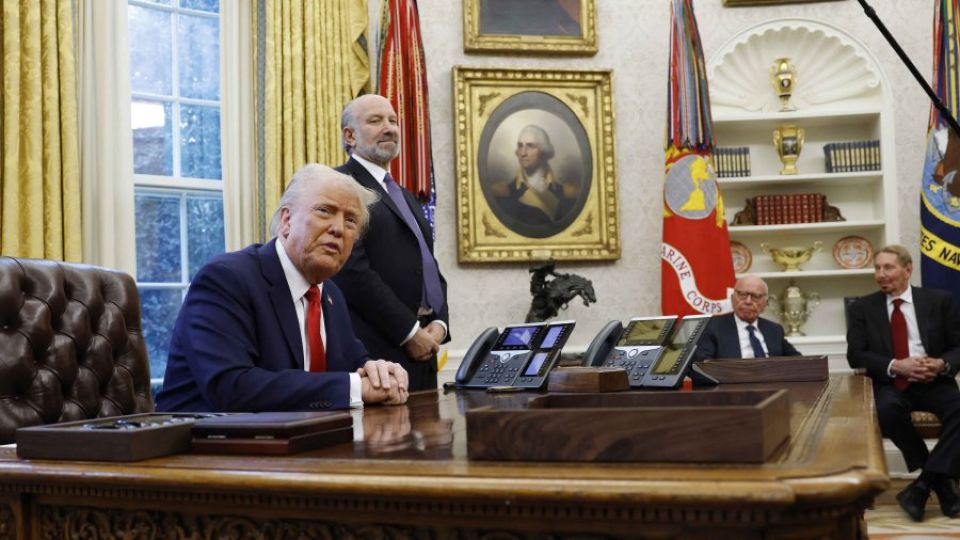February 5, 2025
SEOUL – With US President Donald Trump’s long-threatened tariffs on goods from Canada and Mexico paused for a month, South Korean companies operating in these countries breathed a sigh of relief. However, firms remain vigilant as the measures are temporary and subject to change in the near future.
Following a last-minute deal struck between the leaders of the three neighboring countries, the US plan to impose 25 percent duties on imports from Mexico and Canada was put on hold, averting a full-fledged trade conflict for now.
But analysts noted that the delay provides only temporary relief and that the situation remains fluid.
“The delay in tariffs does not mean the issue is resolved completely,” said Cho Seong-dae, director of trade studies and cooperation at the Korea International Trade Association. “Companies have earned a month (reprieve) from immediate damage or raised costs, but the uncertainty persists, so they have to keep a close eye on it.”
The tariff threat was especially concerning for South Korean conglomerates that have set up manufacturing bases in Mexico and Canada to serve the US market, a strategy known as nearshoring.
Particularly in recent years, Mexico has emerged as a go-to destination for Korean companies targeting the US market, capitalizing on proximity to the US, tariff advantages under the US-Mexico-Canada Agreement, and lower labor costs.
Major conglomerates such as Samsung, LG, Hyundai Motor Group, Posco and CJ have expanded their investments by upgrading existing Mexican plants or building new plants. As a result, Korea’s investment in Mexico, which was just $11 million in 2020, jumped to a whopping $396 million in 2022.
Samsung runs manufacturing plants for televisions in Tijuana and refrigerators and washing machines in Queretaro. LG also produces refrigerators and ovens in Monterrey, TVs in Reynosa and automotive parts in Ramos Arizpe.
Amid tariff risks, both Samsung and LG are set to review their strategies in Mexico, including the possibility of relocating part of their production to factories in the US.
During a recent earnings call, LG Electronics CFO Kim Chang-tae said if the tariff hike is steep, the company might consider relocating production facilities or adjusting output at existing sites.
Tariffs are also a concern for Kia, which operates an auto plant in Nuevo Leon that annually ships about 150,000 vehicles to the US, representing 18 percent of the carmaker’s US sales.
The threat of tariffs also raises challenges for Hyundai’s auto parts affiliates, Hyundai Mobis, Hyundai Transys and Hyundai Wia, which have established facilities in Mexico to serve the North American market.
According to corporate tracker Korea CXO Institute on Tuesday, 25 of South Korea’s largest business groups operate a total of 201 subsidiaries across Canada and Mexico, which have 110 and 91 business units, respectively.
Samsung leads the group with 68 entities — 50 in Canada and 18 in Mexico.
Hyundai Motor Group came in second with 16 subsidiaries in Mexico and 12 in Canada, followed by Hanwha with 12 in Mexico and two in Canada.
LG and Posco each have 11 in both countries.
Since most companies operating in Canada are focused on solar power, wind power and other renewable energy sectors, observers say operations in Mexico, which center on manufacturing, auto and electronics, will bear more of the brunt of any potential tariff hikes.
“For major Korean conglomerates with manufacturing facilities in Canada and Mexico, a tariff hike could deal a blow to their competitiveness in the US market, especially in sectors like batteries, electronics and automobiles,” said Oh Il-sun, director of Korea CXO Institute. “As relocating factories to the US in the short term is not easy, companies may have to focus on expanding sales within Mexico and Canada or diversifying their market strategies in countries other than the US to mitigate tariff impacts.”
Many industry watchers agree that Mexico and Canada are just the start, and Trump will continue with tariffs on other trading partners, including the EU. A US tariff of 10 percent on Chinese goods had already come into effect as of Tuesday.
Trump said he is also prepared to impose sector-specific duties, including on semiconductors, steel, aluminum, copper and medicines, which are key import goods for South Korea.
While South Korea has not yet been singled out for country-specific duties, government and industry officials remain concerned that Seoul could be a future target, considering Trump’s fixation on slashing the US trade deficit, which was $51.4 billion with Seoul last year.
“This is just the beginning. More tariff measures will follow,” said KITA’s Cho. “But tariffs typically drive up consumer prices and fuel inflation. Prolonged tariffs could ultimately become a double-edged sword for Trump.”
He added that Trump understands the risks. “If tariffs achieve their intended goals, such as resolving certain issues, they could be lifted sooner than expected or even suspended before full implementation.”
Acting President Choi Sang-mok also raised concerns about the potential enactment of tariffs in the future.
“Tariffs against Mexico and Canada have been suspended for a month, but if this measure is implemented, uncertainty in our exports and the overall economy may increase,” Choi said in a meeting with economy-related ministers on Tuesday.
“The possibility that the US tariff measures will expand in the future cannot be ruled out,” he said, stressing that the government will seek all possible means to respond to this situation.


